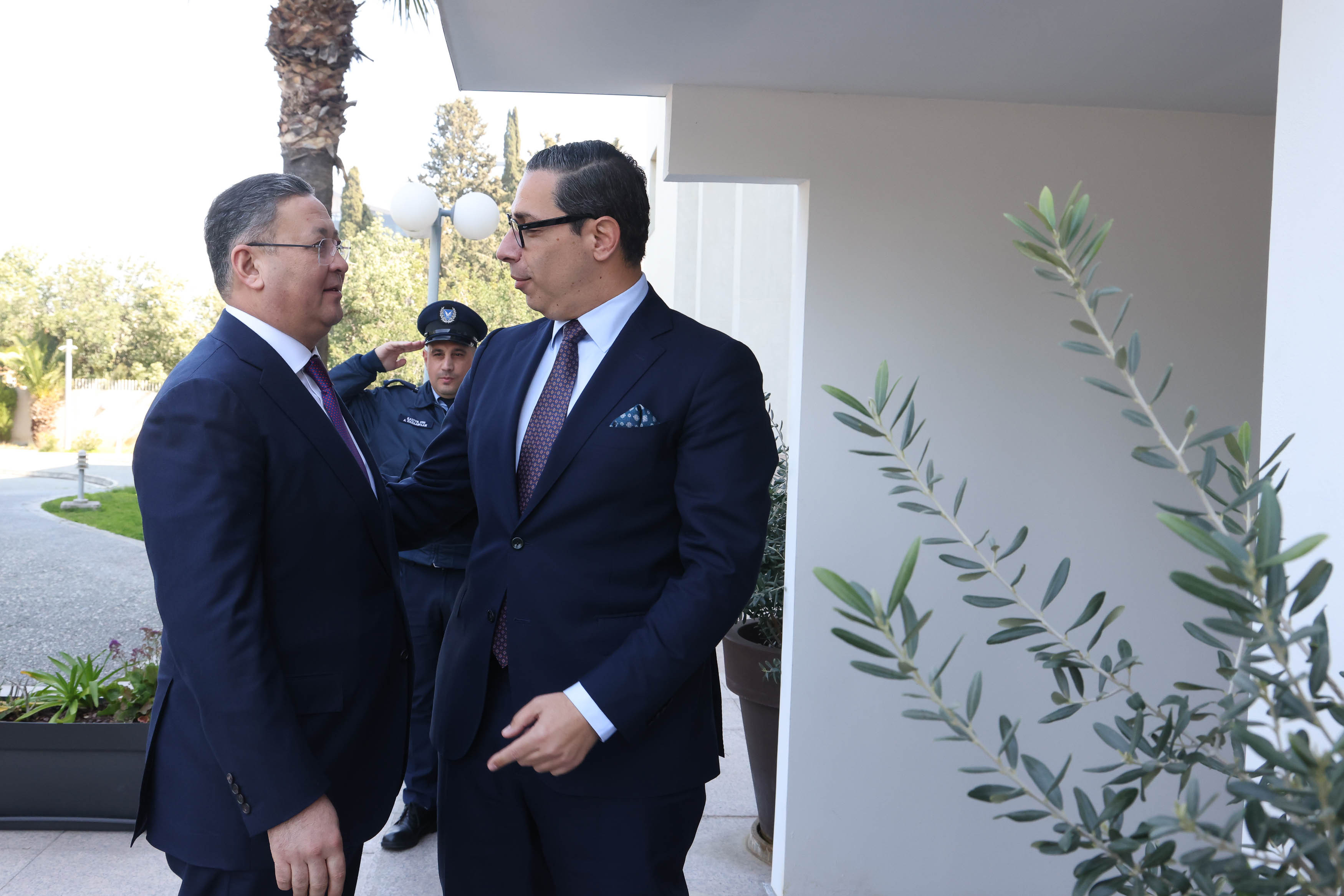Foreign Minister Constantinos Kombos and Kazakhstan’s Deputy Prime Minister and Foreign Minister Murat Nurtleu explored the possibility of direct flights between the two countries as part of efforts to strengthen their bilateral relations during their meeting on Thursday.
This marks the first-ever visit of a Kazakh foreign minister to Cyprus, following an invitation from Kombos. The visit comes as a reciprocal gesture after Kombos’ trip to Astana in March 2024, highlighting the growing diplomatic ties between the two nations.
During their talks, the two ministers reviewed the progress of bilateral relations and agreed to accelerate efforts to enhance cooperation in various sectors, including tourism, trade, and economic collaboration. A major milestone in this partnership is the establishment of embassies in both capitals, in Astana in October 2024 and in Nicosia in February 2025. This diplomatic expansion demonstrates a mutual commitment to deepening ties at both bilateral and multilateral levels.
One of the key topics on the agenda was connectivity, with both sides exploring the launch of direct flights between Cyprus and Kazakhstan. This initiative follows the signing of an air services agreement during Kombos’ visit to Kazakhstan last year.
Direct flights are expected to boost tourism and business exchanges, making travel between the two countries more accessible and convenient.
Additionally, the ministers agreed to move forward with the formation of a Cyprus-Kazakhstan intergovernmental committee. This body will oversee and facilitate collaboration in key areas, including economic policies and sectoral investments.
The establishment of this committee is set to take place ahead of the upcoming visit of the president of Cyprus to Kazakhstan.
Beyond bilateral matters, Kombos briefed his Kazakh counterpart on the latest developments concerning the Cyprus issue, reiterating the government’s commitment to a solution based on United Nations Security Council resolutions. The discussions also touched on Cyprus’ priorities for its presidency of the Council of the European Union in 2026, as well as broader geopolitical concerns, including EU-Kazakhstan relations, EU-Central Asia ties, and ongoing conflicts in the Middle East, Ukraine, and Afghanistan.






Click here to change your cookie preferences